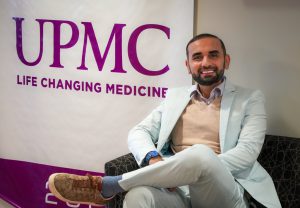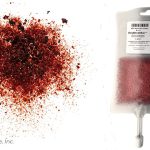Talk about ChatGPT and other forms of “generative AI” dominate conversations among technology watchers these days. At UPMC, clinicians in Central Pennsylvania are leading the way in applying artificial intelligence (AI) to the delivery of care. An AI-based solution tool, Abridge, “listens” and takes notes during doctor’s appointments. The clinical note is then integrated into the patient’s electronic health record (EHR) at UPMC, making it easy for them to review appointment summaries, while reducing hours of administrative work for providers.

Dr. Salim Saiyed
“It’s no secret that health systems have been facing significant challenges since the pandemic related to staffing shortages and the clinician burnout caused by it,” said Dr. Salim Saiyed, chief medical information officer of UPMC in Central Pa. “At UPMC, our focus is to help providers reduce time spent on documentation and free them up to focus on patient care. Providers who use Abridge currently save two hours per day on average. And the technology is integrated into the Epic electronic health record platform that doctors use every day, creating additional time-saving opportunities.”
Abridge, in which UPMC is an early investor and whose co-founders include a UPMC cardiologist, is now the first to be part of Epic’s “Partners and Pals” program. The collaboration will make Abridge’s documentation solution available for integration in Epic, a leading EHR used across the country and recently chosen to be the single platform at UPMC.
Abridge allows providers to generate real-time, structured summaries of their conversations with patients. It also gives patients accurate and actionable care plans and intelligent reminders about their health. The technology is HIPAA-compliant, with multiple layers of security and controls.
“Every provider using the technology has described it as game-changing,” said Dr. Saiyed. “It’s like having a real-time scribe, as it immediately takes information from patient appointments and writes a patient history and visit summary. Providers can also add any context to the notes as desired. Notes are not only accurate but are also much faster to obtain.”
Over 2,000 patients’ recordings were made in just the first three weeks of the Abridge rollout in UPMC in Central Pa.
Journalists interested in learning more can contact mediarelations@upmc.edu.








